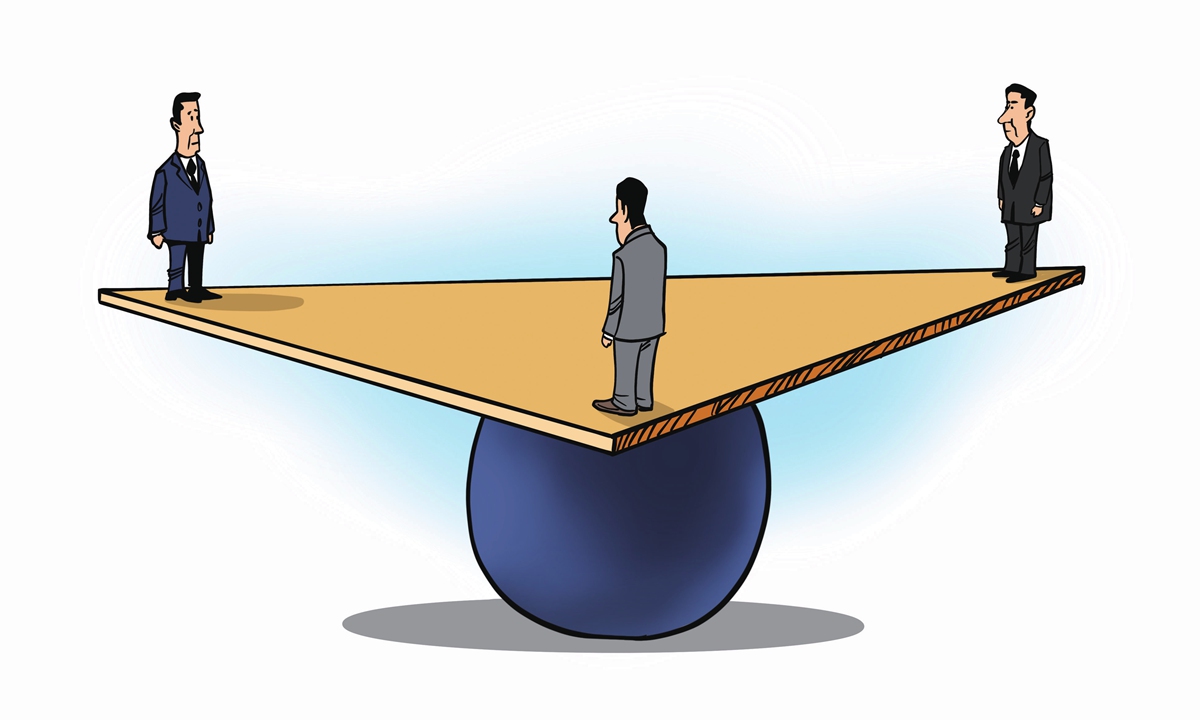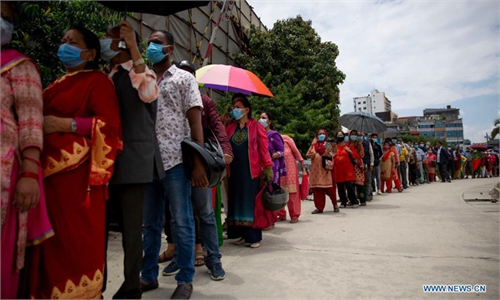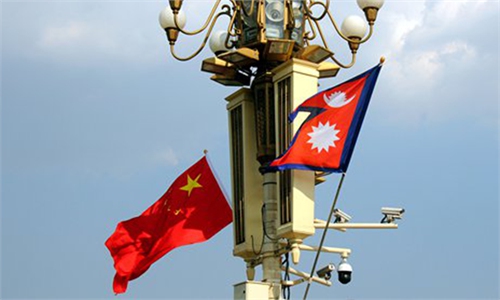
Illustration: Liu Rui/GT
Nepal's new Prime Minister Sher Bahadur Deuba, leader of the Nepali Congress, won the support of more than half the members of the House of Representatives on Sunday. Deuba assumed office on July 13, assuming power for the fifth time. Sunday's vote of confidence would allow him to stay in power until general elections scheduled for next year. Observers believe the Nepali Congress will likely lead Nepal's foreign policy toward a favorable direction for India.
Nepal and India have close geographical and cultural relations. Geographically, Nepal is situated along the southern ridges of the Himalayan mountain range and has no outlet to the sea.
If the country wants to participate in world economic and trade activities, it must first go through Indian soil. It can be said the key to Nepal's access to the world lies in India's hands. Moreover, Hinduism is the main and largest religion of Nepal. Therefore, no matter which party is in power, India's influence cannot be avoided.
The Nepali Congress was formed in 1950 by the merger of Nepali National Congress and Nepal Democratic Congress. The Nepali National Congress was founded by Bishweshwar Prasad Koirala, a Nepali politician, who had studied and lived in India. Varanasi, a city in Uttar Pradesh state, northern India, provided its land for the political party to kick-start its life. It was also a major destination for many Nepali students seeking higher education. Koirala was involved in the Indian nationalist movement; his son was a follower of Mahatma Gandhi, leader of the Indian independence movement against British colonial rule. These historical backgrounds narrow the relationship between the Nepali Congress and India.
There are multiple reasons for Nepal's political change, including political infightings within the Communist Party of Nepal and global geopolitical factors .
On July 13, the day Deuba took oath as prime minister, he received congratulatory message from the US Ambassador to Nepal Randy Berry on Twitter, which read: "Congratulations and best wishes to Hon. Sher Bahadur Deuba... The U.S. mission looks forward to working with him to advance our nearly 75-years of friendship at all levels." Indian Ambassador to Nepal, Vinay Mohan Kwatra, even visited the residence of Deuba on July 14 to congratulate him. Their eagerness to promote ties with the new prime minister is quite obvious.
However, it remains unclear how long Deuba will be able to stay in office. He was not elected by the Parliament but by the Nepal's Supreme Court, which means he has limited support in Congress and among the people. The Communist Party of Nepal is still the biggest party in the House of Representatives, if Deuba cannot firmly grasp the support of the majority of the Parliament; he won't be able to guarantee a favorable environment for his party in the general elections next year. If the novel coronavirus surges again in the country, leading to a deteriorating economy, the ruling party will take the fall. These days in Nepal, denying someone is easier than approving one.
Moreover, Nepal's foreign policy has already taken shape. No matter who comes to power, they cannot lead the country toward prosperity without cooperation with China or avoid the influence of India. Nepal is still eager to develop relations with countries of the third-party countries. Deuba's rise to power may tilt Nepal a bit toward India, but he will not change the basic idea of multilateral balanced diplomacy between China, India and the third-party countries.
For China, it is more important to deepen its understanding of Nepal's foreign policy than to focus on the changes in the leadership and ruling party.
The establishment of a new diplomatic system with multiple subjects, forms and dimensions is not only necessary for the development of China's relations with Nepal, but also for China's diplomatic reform in the new era.
The author is professor at the Center for American Studies, Fudan University.
The article was translated by Ye Zhouying of East China Normal University.
opinion@globaltimes.com.cn



